Scan barcode
The Most Influential Sci-Fi Books of All Time (Book Riot, 2021) - NEW VERSION
33 participants (73 books)
Overview
What do we talk about when we talk about science fiction? Is it our hope for the future, or our fear of creating the very thing that will destroy us? If the most influential sci-fi books of all time are any indication, the answer is both.
Since the early 19th century, humanity has been fascinated by its own ability to move goalposts and demolish old boundaries in the dogged pursuit of progress. Our interpretation of that progress frequently shifts between cautious optimism and resignation toward our own doom, due to various social and political climate changes. But even at our most pessimistic, when we collectively felt as if we’d lost some great cosmic game, never, not once, have we ever stopped writing and reading new futures for ourselves. That’s a testament, not only to the staying power of sci-fi, but also to the tenacity of the human race.
The most influential sci-fi books of all time have shaped not just science fiction and its myriad sub-genres, but horror, fantasy, and manga, as well. Filmmakers have drawn inspiration for the stories between their covers, and real-world STEM developments have been made in their names. Without these books, for better or worse, our world would not be what it is today.
https://bookriot.com/the-most-influential-sci-fi-books-of-all-time
https://bookriot.com/the-most-influential-sci-fi-books-of-all-time
The Most Influential Sci-Fi Books of All Time (Book Riot, 2021) - NEW VERSION
33 participants (73 books)
Overview
What do we talk about when we talk about science fiction? Is it our hope for the future, or our fear of creating the very thing that will destroy us? If the most influential sci-fi books of all time are any indication, the answer is both.
Since the early 19th century, humanity has been fascinated by its own ability to move goalposts and demolish old boundaries in the dogged pursuit of progress. Our interpretation of that progress frequently shifts between cautious optimism and resignation toward our own doom, due to various social and political climate changes. But even at our most pessimistic, when we collectively felt as if we’d lost some great cosmic game, never, not once, have we ever stopped writing and reading new futures for ourselves. That’s a testament, not only to the staying power of sci-fi, but also to the tenacity of the human race.
The most influential sci-fi books of all time have shaped not just science fiction and its myriad sub-genres, but horror, fantasy, and manga, as well. Filmmakers have drawn inspiration for the stories between their covers, and real-world STEM developments have been made in their names. Without these books, for better or worse, our world would not be what it is today.
https://bookriot.com/the-most-influential-sci-fi-books-of-all-time
https://bookriot.com/the-most-influential-sci-fi-books-of-all-time
Challenge Books
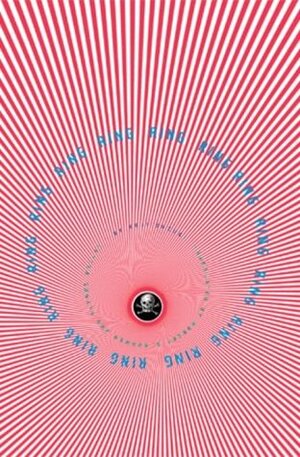
Ring
Kōji Suzuki
J-horror fans owe a lot to Koji Suzuki’s Ring, which inspired several popular films made in the U.S., Japan, and South Korea, ushering in a new era of onryō-themed horror. Don’t let all this talk of chilling ghosts and blood-curdling frights fool you, though, because Ring is 100% a sci-fi mystery, one in which a mysterious illness, not necessarily Sadako herself, is responsible for killing anyone who watches her infamous videotape.
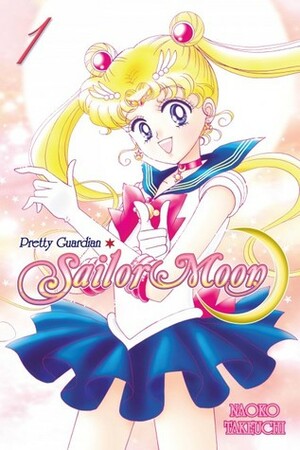
Pretty Guardian Sailor Moon, Vol. 1
William Flanagan, Naoko Takeuchi
Sailor Moon isn’t the original magical-girl manga, but it may certainly be the most famous. Naoko Takeuchi’s 1990s space-fantasy series transformed the mahou shoujo genre forever by turning Usagi Tsukino and her friends into superheroes and emphasizing the importance of stereotypically “girly” interests, such as makeup, fashion, and all things cute.
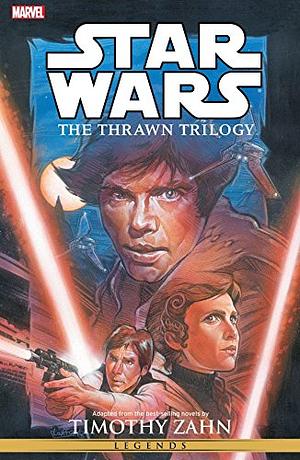
Star Wars: The Thrawn Trilogy
Mike Baron
I know what you’re thinking. An IP series? On a list like this? Like it or not, Timothy Zahn’s Thrawn trilogy was the definitive continuation of the Skywalkers’ story for a generation of readers before the movie sequel trilogy. Although they’re no longer canon, Zahn’s Heir to Empire, Dark Force Rising, and The Last Command remain some of the greatest adventures ever written for sci-fi’s most recognizable heroes.
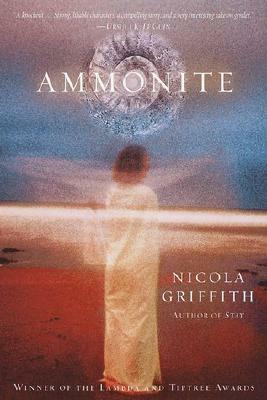
Ammonite
Nicola Griffith
A Lambda and Tiptree Award-winner, Nicola Griffith’s Ammonite follows an anthropologist to a colonized planet where a viral outbreak has killed many and changed the very makeup of the remaining survivors. Like Charlotte Perkins Gilman’s Herland, Ammonite devotes its time and attention to fleshing out what a world run by women would really look like — for better or for worse. It’s certainly not the first to cross this territory, but Griffith’s novel stands out as one of the finest examples of feminist science fiction ever written.
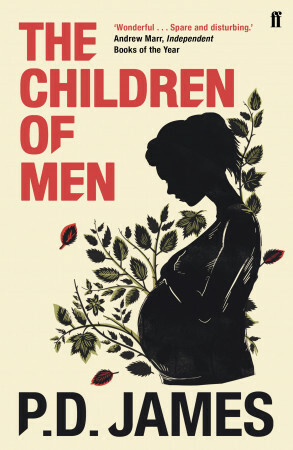
The Children of Men
P.D. James
Ranked as one of the BBC Arts “100 Novels That Shaped Our World” in 2019, PD James’s Children of Men imagines a near-future in which humanity’s inexplicable and near-total sterility has caused the breakdown of society around the globe. The novel’s post-pandemic setting — in this case, a flu pandemic in 2008 — and its depiction of a society willing to sacrifice its weakest members will ring true, and perhaps painfully so, for modern-day readers.
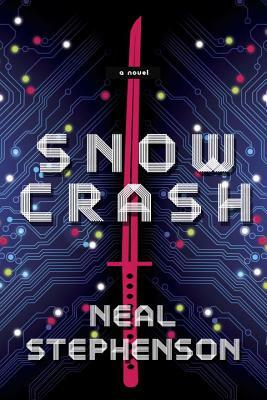
Snow Crash
Neal Stephenson
It’s not often you find a book that helped to shape the entire Internet, but here we are. Neal Stephenson’s Snow Crash predicted Google Earth, inspired Second Life, and popularized the term “avatar” for an online profile picture or character. Not too shabby for a tongue-in-cheek novel, wouldn’t you agree?
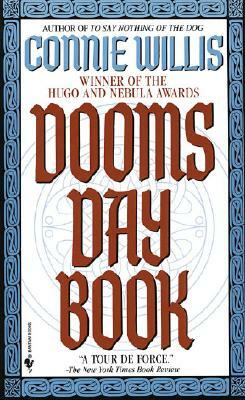
Doomsday Book
Connie Willis
A Hugo and Nebula winner, Connie Willis’s Doomsday Book follows a time-traveling historian to 14th century Oxford, where she becomes stranded in the midst of the Black Death, thanks to a global influenza outbreak spreading in her home time. A treat for all readers, Doomsday Book will particularly tickle fans of other stories about time-traveling academics, such as Jasper Fforde’s The Eyre Affair and Genevieve Cogman’s The Invisible Library.
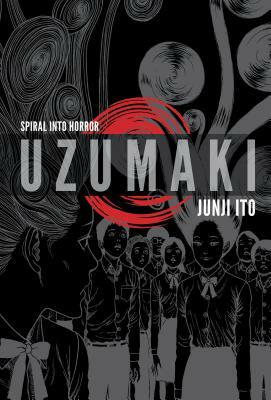
Uzumaki
Junji Ito
No one does horror manga like Junji Ito. Nowhere is the creator of Tomie and Remina better than in Uzumaki. Subtitled “Spiral into Horror,” this three-part manga series is a supernatural thrill-ride that effortlessly combines time travel with body horror. Although Ito’s influence is undoubtedly strongest within the horror genre, the weirdness of his work earns him a well-deserved place on this list.
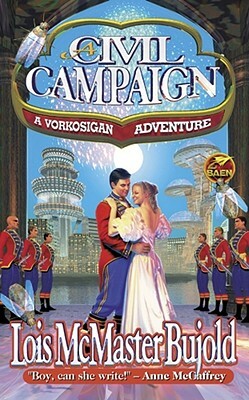
A Civil Campaign
Lois McMaster Bujold
These days, it’s not uncommon to find sci-fi and fantasy novels with significant romantic subplots, but Lois McMaster Bujold’s A Civil Campaign is in a league of its own. Blending together Regency romance, cozy mystery, and space opera, this entry in Bujold’s Vorkosigan Saga is an utter delight to read. Long before Pride and Prejudice and Zombies made mashup novels into dinner-table talk, A Civil Campaign had sci-fi fans swooning on the edges of their seats.
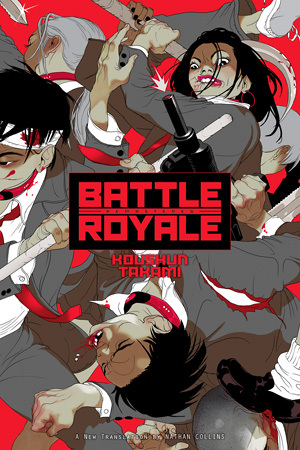
Battle Royale: Remastered
Koushun Takami
Before Suzanne Collins’s The Hunger Games, there was Koushun Takami’s debut novel, Battle Royale. Much like Katniss and her fellow Tributes, Takami’s teenage protagonists are taken to a remote, televised location where they’re expected to fight each other to the death for their country’s entertainment. Although Collins has never claimed to have taken inspiration from Battle Royale, internet denizens have traced the lineage of popular video games, such as Fortnite and PlayerUnknown’s Battlegrounds, to Takami’s novel.
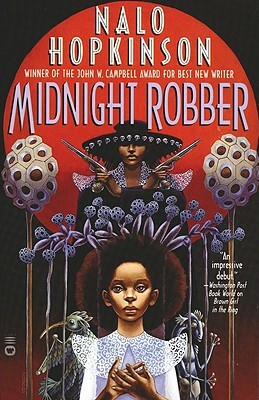
Midnight Robber
Nalo Hopkinson
In her sophomore novel, the follow-up to 1998’s Locus Award-winning Brown Girl in the Ring, Nalo Hopkinson imagines a corner of colonized space that’s heavily influenced by Afro-Caribbean tradition and folklore. In telling Tan-Tan’s coming-of-age story, Hopkinson treads into a number of heavy topics, including rape and incest. Midnight Robber received a starred review in Publishers Weekly and helped to cement Hopkinson as one of the most influential sci-fi writers of the 21st century.
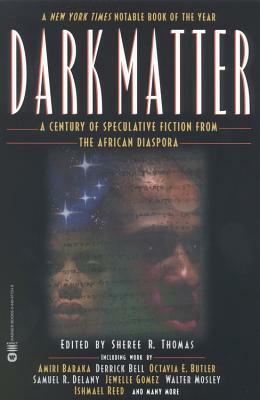
Dark Matter: A Century of Speculative Fiction from the African Diaspora
More than 100 years separate the first and third sci-fi novels on this list, due in no small part to the fact that, as Nisi Shawl — paraphrasing Jess Nevins — points out, “the race of the many anonymous authors published in the pulps in [the 1930s and 1940s] is unknown.” Dark Matter fills in some of that gap, collecting short fiction and essays from Shawl, Butler, Hopkinson, and Samuel R. Delany, as well as W.E.B. DuBois, Honorée Fanonne Jeffers, and Jewelle Gomez, among others.
